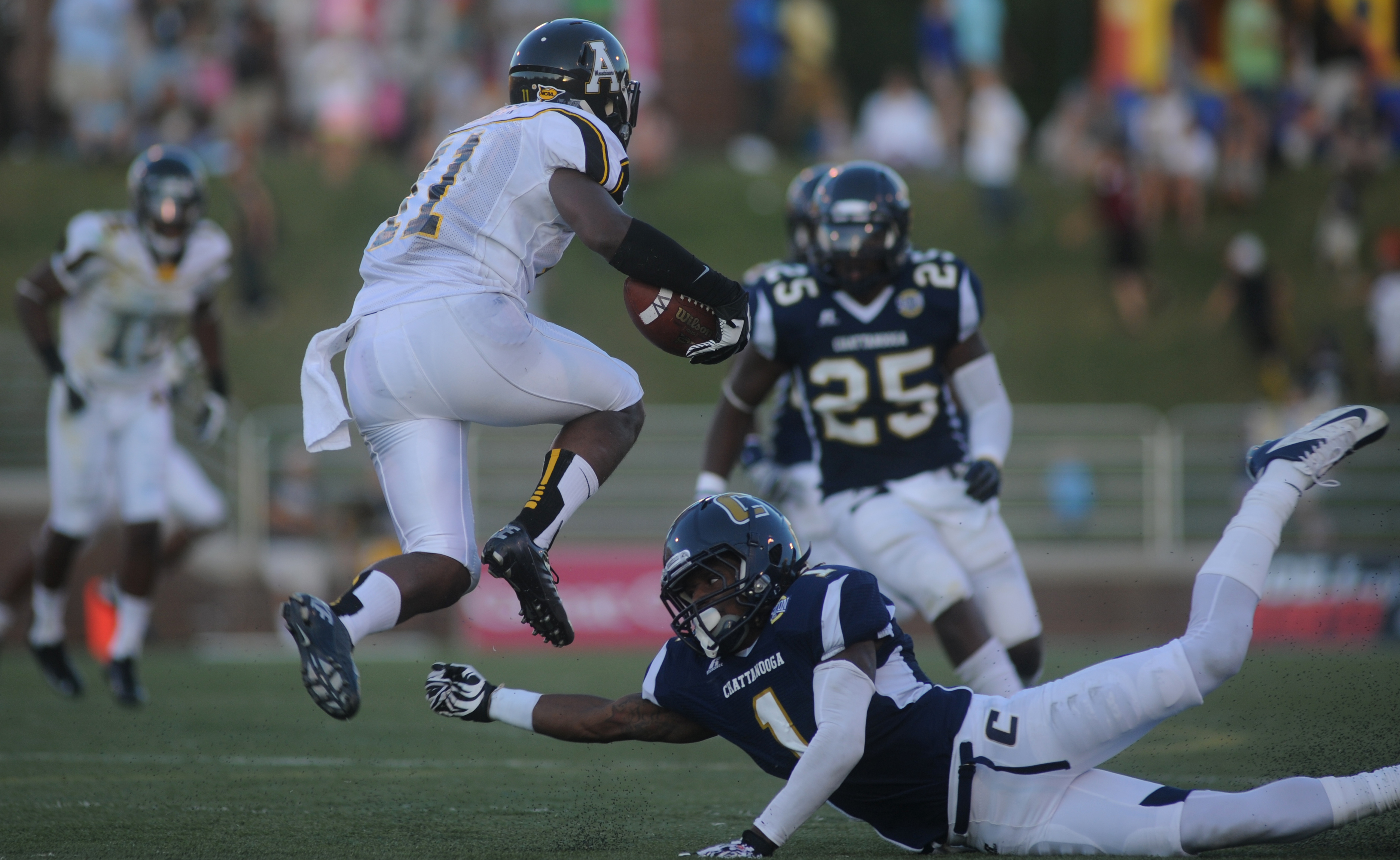Change has once again come to the Southern Conference.
The league that was once the home of Alabama, Georgia, Tennessee, North Carolina and many, many more schools, will soon be without its current top two football powers. Georgia Southern and Appalachian State announced Wednesday that they were headed to the Sun Belt Conference.
The Eagles and Mountaineers, who have a combined nine Football Championship Subdivision national titles between them, are taking their talents to the Sun Belt, which has been gutted in the past year by teams leaving for other conferences. In December, the SoCon lost the College of Charleston to the Colonial Athletic Association.
"The domino effect, it goes all the way through Division I," SoCon commissioner John Iamarino said of the conference realignment craze that has hit nearly every Division I conference in the past two years.
University of Tennessee at Chattanooga football coach Russ Huesman said he'll miss playing App State and Georgia Southern every season.
"You hate to not get the opportunity to play those guys," he said. "That's the biggest thing that hit me, that this [fall's games] will be it."
ASU and Georgia Southern will play in the SoCon this fall, but they won't be eligible for the SoCon title or the FCS playoffs. Their two-year transition clock will begin right away in order for them to be eligible for a bowl game in 2015, which means they will need to move above the 63-scholarship limit in the FCS.
Iamarino said all SoCon games will count in the fall, and ASU and GSU will be listed in the SoCon standings and statistics, but the top eligible team in the standings will be the one that claims the league's automatic bid.
As for the status of all other SoCon titles and postseason bids up for grabs in the 2013-14 academic year, Iamarino said current league regulations "permit all full-time members, even those departing, to participate in Southern Conference championships."
Because Appalachian State and Georgia Southern, like the College of Charleston, are leaving without giving two full years' notice, they will each have to pay $600,000 exit fees. Iamarino said that money will go into the league's reserve fund.
Wednesday's announcement was by no means a surprise. Appalachian State and GSU have been open about their desires to move to the FBS and as teams like Middle Tennessee State and Florida Atlantic left for Conference USA, it appeared only a matter of time before the Sun Belt began adding teams.
The SoCon has been discussing its realignment options for more than a year. At the last SoCon ADs meetings, in late January, all of the league's ADs were asked to submit their top three choices for schools to join the league. Every ballot was different, UTC interim AD Laura Herron said.
When the league meets on April 10 in Charlotte, Herron said, "we're going to come to a consensus and decide what's best for the conference."
Iamarino described having to turn around and pluck schools from other conferences as, "Without a doubt it's the most distasteful thing that we have to do." But it has to be done, and whether the SoCon, which is down to nine schools, adds one or six or no schools for 2014-15, a decision needs to be made by June, he said.
Schools such as East Tennessee State, Mercer, Kennessaw State and VMI, among many, have been mentioned in the media and online as possible SoCon targets. All Iamarino said on the subject of candidates Wednesday was: "I can assure you we are not looking at Division II programs."
These are far from ideal days for the SoCon, but change has been a constant in the league, which was created in 1921. Virtually every current member of the Southeastern Conference and Atlantic Coast Conference was once in the SoCon.
"This league has historically been able to reinvent itself," Iamarino said, adding, "We'll be fine. We're going to bounce back, and I have every reason to believe that the Southern Conference will be a viable Division I conference for many years to come."

